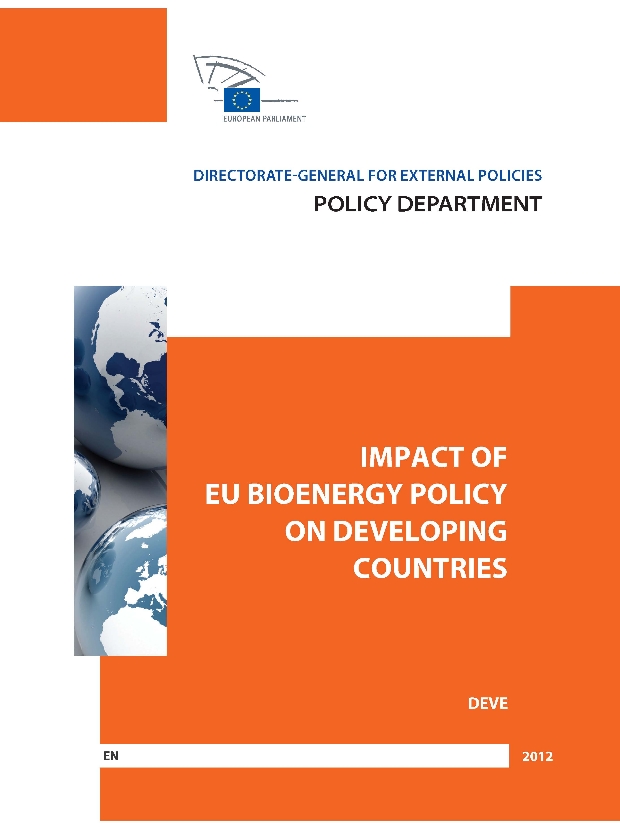Impact of EU Bioenergy Policy on Developing Countries
- Publication
- Citation
Wunder, Stephanie; Timo Kaphengst; Krista Timeus and Kristine Berzins 2012: Impact of EU Bioenergy Policy on Developing Countries. European Parliament, Brussels.
In order to meet its renewable energy targets by 2020, the EU is likely to increase its demand for biomass, not only for biofuel crops but also for woody biomass. A significant portion of this biomass will likely come from developing countries, particularly those in West and Central Africa, as well as Latin American countries. This demand can have significant negative impacts in these developing regions, including environmental degradation and threats to food security. In this brief for the European Parliament, researchers at Ecologic Institute (Stefanie Wunder, Timo Kaphengst, Krista Timeus and Kristine Berzins) analyze some of those main impacts, focusing particularly on woody biomass. The study is available for download.
The brief is part of the framework contract on development policy with the European Parliament that Ecologic Institute coordinates. The study [pdf, 1.4 MB, English] is available for download.




